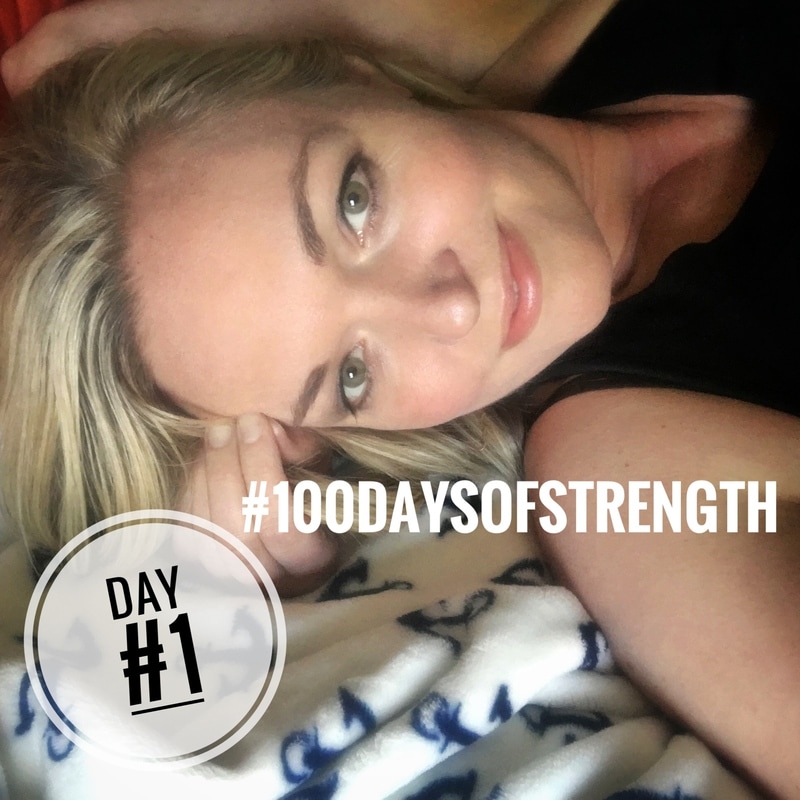 Towards the end of last summer, I was challenged by my neurosurgeon to dedicate 100 days to getting as strong as possible, physically & mentally. He hoped that during that time, I would be able to stay healthy, and I would go into the fall ready for what we already knew was an inevitable shunt surgery. So, along with a couple of my friends and my strength training team, I jumped into an incredible 100 day journey. I committed to posting once a day on my Instagram account— documenting, recognizing, and acknowledging the things I did every day to become stronger. It was really fun on some days, and really challenging on others. Unfortunately, my brain didn't cooperate, and I had my 16th brain surgery on the 30th day. I took a few days off, then started up again— pressing myself to find the strength in the many tiny victories of recovery… and using my tears to fuel my drive for better days. I finished my 100 days of strength on Thanksgiving Day. On that day, I reflected on the path I had followed for those three months. The nights in the gym, and the talks with my friends. The brain surgery, and the recovery that followed. The quotes that pushed me to keep going, and the daily battle to stay in the arena. I had finished the challenge, and I was stronger. In that moment of reflection, I was so thankful that I have people in my life who care enough about me to push me relentlessly, and who are never afraid to walk with me through the valley of the shadow of death. We do it together, and we come out stronger. I’ve had an incredibly difficult year. I’m recovering again from surgery, and it’s been a difficult few weeks. But, today at lunch time, I was looking through the photos on my phone, and I stumbled upon the video montage of the 100 Instagram posts, that I had uploaded to YouTube. It made me feel a little emotional, because it was a reminder of something I have learned this year… That I may feel like I’m struggling right now, but I am in total control of myself, my thinking, and my actions. If I choose to be strong, I am strong. And I choose strength. Today, I’m going to start a new #100daysofstrength — and this time, it’s different. Last time, Dr. Yundt challenged me, and this time, I am challenging myself. I’m not able to work out for another week or so, but every day I will honor the journey to more mental, emotional, spiritual, and then… physical strength. Follow my #100daysofstrength on Instagram @stayinthearena Much love, Amy
4 Comments
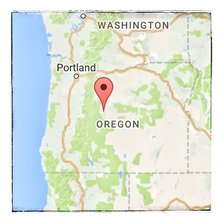 Sometime during the winter of 2010-11, I sat with my friend Mark Powers at a bar in Salem, discussing the wonder of human relationship. Mark was telling me about a concept taught by motivational speaker Jim Rohn, where he states that a person is the average of the five people they spend the most time with. Human nature is to morph into the lifestyle, choices, language, and values of the people we are closest to. Connection is often initially made by mirroring and mimicking the behavior of others, but as more time is spent together, those behaviors and beliefs become the mode of operation of the person seeking that connection. This conversation, seven years later, has stuck with me. I can look back on the phases of my adult life, and track the changes, growth and challenges - based on the people in my closest circle. I’ve often thought of this discussion, and all the friends I’ve been so blessed to have near to my heart. Mark is a super talented professional drummer who currently lives in Portland but performs all over the world, writes instructional drumming books, and teaches here in Salem a couple of days a week. He’s spoken and hosted at TedX events, and has a great heart for public service and humanity. He and I got together last week, for the first time in years. We spent several hours talking music, teaching, advocacy, and the relentless pursuit of life. As we talked about the many teachers and mentors who have shaped both of us as musicians, I told him that I’ve always remembered that conversation we had back in 2010, and I explained to him that I have another way to think of human relationship…. as dropped pins. The Apple website defines a “dropped pin” as a way to mark a location- to either get directions, or to find your way back to that place in the future. It’s a term that never existed in the days before smart phones ruled the world, but is common terminology among the tech-savvy today. As I told Mark the other night, I see certain people as “dropped pins” on the road of life. So many people come and go throughout your journey in this world - social circles and relationships are fluid and ever changing. But then there are special humans - ones that when you meet, you know you’ll never be the same, and in that moment, you drop a pin. The alliance you form changes the course of your life, and sends you on a different trajectory. And, if you drop a pin, you can always track back to those important connections, if you lose your way. The web made by tracing all the pins you drop becomes the net that catches you when you fall, providing the security we know as friendship and love. Perhaps you are one of my dropped pins. The friendship I share with you has the power to change my life’s path, and I pray that God may use me in some way to enrich your life as well. To be truly blessed by friendship, we must choose to reciprocate the comfort, received in trust and love. There is a song by an artist named Renn, called I Won’t Forget, that speaks of the lasting impact of powerful relationships. Here’s to us. May we never forget the four agreements, the five people who shape us, and the unwavering relentless love of our dropped pins. I won't forget, I won't forget Every word you said Every word you said Before you walk down that road Headed where, only God knows to I'll never forget you peace, Am {for freddy 5/29/17 .....mavericks forever. much love. xo}  Dear Friends & Family, Supporters and fellow Hydro Warriors, Growing up, I was raised by two loving, supportive, and incredibly resilient human beings, who taught me from a young age that success in life is not defined by what happens to you, but how you choose to respond to what happens. My parents gave me the skills I needed to fight my own battles, stand up for myself, and never give up. They are living proof that God gives you only what you can handle, and that love always wins. For this, I am eternally grateful. In the past 8 months, several life-altering changes have tested my resolve, crushed my heart, and forced me to take a good hard look at who I am. Nearly every aspect of my personal life has shifted, and a new chapter has begun. Each difficult experience or loss ripped a layer off the surface of my personality, exposing strengths and gifts, struggles and weaknesses. Wall after wall that I had built to guard my heart have tumbled down, leaving nothing but my true self, exposed to the world, but protected by the grace of God. And through all of this pain and vulnerability, I have found the most incredible peace. Staying present and in control my thinking, I am healing, and finding that I am never alone. Nothing about this process has been easy, but I am committed to accepting this as an opportunity to grow as a person. I first read this poem by Rudyard Kipling in English literature class in high school, but I had forgotten about it until a close friend sent it to me recently. It truly defines the relentless pursuit of life and love. As I read it for the first time in years, tears were streaming down my face. It was one of many moments in the past several months, where I felt a very real and tangible challenge to find the bravery to continue, reminding me and reaffirming the notion that love always wins. IF If you can keep your head when all about you Are losing theirs and blaming it on you, If you can trust yourself when all men doubt you, But make allowance for their doubting too; If you can wait and not be tired by waiting, Or being lied about, don't deal in lies, Or being hated, don't give way to hating, And yet don't look too good, nor talk too wise: If you can dream - and not make dreams your master; If you can think - and not make thoughts your aim; If you can meet with Triumph and Disaster And treat those two impostors just the same; If you can bear to hear the truth you've spoken Twisted by knaves to make a trap for fools, Or watch the things you gave your life to, broken, And stoop and build 'em up with worn-out tools: If you can make one heap of all your winnings And risk it on one turn of pitch-and-toss, And lose, and start again at your beginnings And never breathe a word about your loss; If you can force your heart and nerve and sinew To serve your turn long after they are gone, And so hold on when there is nothing in you Except the Will which says to them: 'Hold on!' If you can talk with crowds and keep your virtue, ' Or walk with Kings - nor lose the common touch, if neither foes nor loving friends can hurt you, If all men count with you, but none too much; If you can fill the unforgiving minute With sixty seconds' worth of distance run, Yours is the Earth and everything that's in it, And - which is more - you'll be a Man, my son!
Moving forward, I am recommitting myself to the goals that I initially had for this website - to support the hydrocephalus community by providing details of my journey, as well as my real life experiences. I remain dedicated to this advocacy work, because I believe that God gave me a strong voice and the ability to connect with people as a purpose for my pain. My name has changed to Amy Thomas, and the name of this website has changed to www.stayinthearena.com - paying homage to the Theodore Roosevelt “Man in the Arena” speech that I often reference in my blogging. Thank you to each and every one of you who have supported me, inspired me, and keep me pushing forward in growth. Thank you for understanding and respecting my need to spend the past several months outside of the spotlight, fighting these battles quietly. I’ve been intensely focused on my physical, emotional, and mental health, and I am doing well. Life is amazing - so painful and beautiful all at the same time. In the end, we get to choose how we respond to the challenge - and love is well worth the battle. Never ever give up the relentless pursuit of everything that’s important. Stay in the arena. It’s where the magic happens. Much love, Am  While working on a construction site recently, I entered a room with a broken window. Standing back to view the entire panel, I could still see the landscape beyond, even though there were a few spots that were obstructed. The pane of safety glass was held together by design, creating a web of cracks extending from corner to corner. The light from outside was shining through the shattered pieces, and I could see colorful fall leaves in the refracted light. It was certainly not the first time I’ve seen broken safety glass, but I just stood there for a minute and took in the strangely beautiful pattern. Looking out that window, I had a profound realization that my brain feels like shattered glass. From the inside, I feel the sharpness of the individual shards, while the world sees the whole picture, with the light filtering through the edges, casting tiny rainbows all around. There’s an invisible force holding it together, like safety glass refusing to fall to the ground. The years of repeated surgeries, shunt malfunctions, and constant pressure fluctuations have left cracked and blurry spots in how I function, rest, heal, and see my battle. But even though my brain is very broken, it’s also fascinating. It’s a prism that is continuously changing, and my life is shaped by how I allow this challenge to reflect my resolve. In relentless pursuit, Am For Lauren - Love you…. Stay in the arena. xx We may shine, we may shatter, We may be picking up the pieces here on after, We are fragile, we are human, We are shaped by the light we let through us, We break fast, cause we are glass. (Glass, Thompson Square) 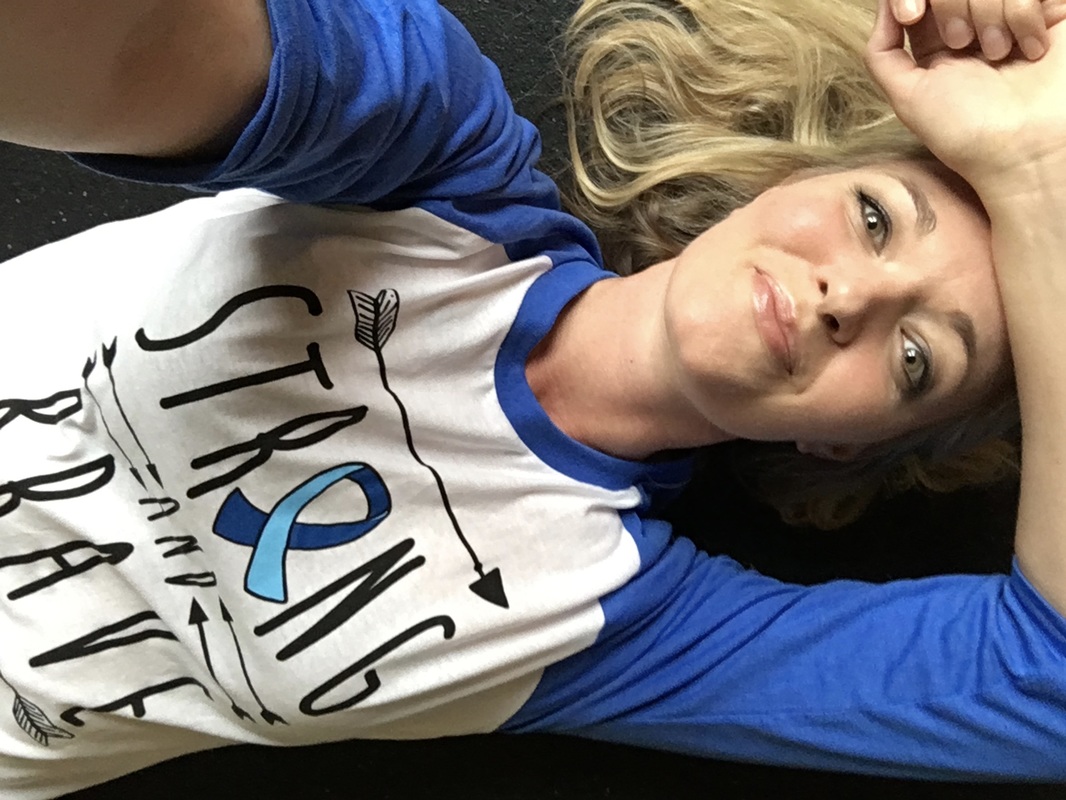 Fear, to a great extent, is born of a story we tell ourselves, and so I chose to tell myself a different story from the one women are told. I decided I was safe. I was strong. I was brave. That nothing could vanquish me. Insisting on this story was a form of mind control, but for the most part, it worked. Every time I felt something horrible cohering in my imagination, I pushed it away. I simply did not let myself become afraid. Fear begets fear. Power begets power. I willed myself to beget power. And it wasn’t long before I actually wasn’t afraid.
Recently I’ve received several messages from parents of kids or babies with hydrocephalus, asking if I have any advice for how to proceed and support their children, with all the uncertainty and challenge that lay ahead. This question is one that I get often. I usually point people to my website, where they can read more about my story and the various treatments that we use to manage my health, and where I often blog about the emotional and mental toll that this condition can have on the patient, and everyone involved. But the best advice I have to offer is to not be afraid. Don’t be afraid to ask questions. They say that nobody has ever died from being too curious. Understanding that hydrocephalus is a complicated and totally frustrating condition to treat, approach your doctors with questions that clarify what their game plan is. Even if there is no clear answer to what’s going on during a time of illness (because that is often the case, unfortunately), knowing what the potential timelines and possible treatment paths will be will help you to prepare, and feel more at ease. Don’t be afraid to know as much as you possibly can about hydrocephalus, even if it’s overwhelming. Knowledge is powerful, and learning could lead you to a path of treatment that could change your life. Don’t be afraid to keep searching until you find a team of medical professionals that you can trust and communicate with. I learned this from my parents, who have always pushed for the absolute best in medical care for myself and my sisters. If you see a physician, and feel that they aren’t a good fit for you, just keep looking. Life with hydrocephalus is a long and winding road, and you are going to be in it for the long haul with your doctors and therapists. Even if you don’t have a lot of complications, it’s important to have that team assembled and established, just in case things change. Don’t be afraid of brain surgery. The alternative of being sick with a malfunctioning shunt (or worse) is much harder than healing from surgery. This is something I tell parents over and over again. It’s really hard when your child is young, and/or non-verbal, to understand what they are going through medically when the shunt isn’t working properly. Guilt and overwhelming sadness creep in as the word “surgery” enters the discussions. But never make decisions about surgery based on fear. Relief is so precious, and life is just on the other side of that difficult decision. Don’t be afraid to work at being healthy in every way you possibly can. My team and I preach this multi-disciplinary care approach to wellness, and I do my best to lead by example. Work at the mental and emotional battle as well, and seek help in this area if you need to (this goes for both patients and caregivers). Exercise, various therapies, diet, and lifestyle will not cure your hydrocephalus, but can greatly improve your overall quality of life. Don’t be afraid to live and love between the madness. Make goals and push to achieve them. Work and enjoy your career, if you are able. Love your friends and family, and those in your support system. Let your life be an example of rising above the challenge, without hydrocephalus becoming your only identity. And don’t be afraid of what lies ahead. All we ever have is the present moment. Seize it and feel every emotion, sensation, and minute that passes, good or bad. We only have to live each difficult moment once, but we also only get one shot at all of the beautiful moments in life. Stay present. And don’t let fear define your journey. Stay in the arena, Amy 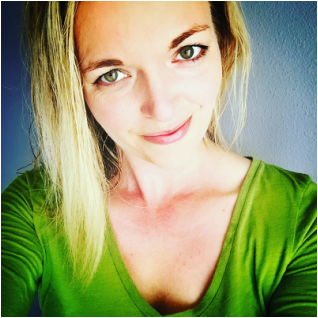 It wasn’t how I wanted to start my Monday morning, driving to my 8am meeting, with tears rolling down my face. From out of nowhere, this song seems to find a way to surface at the crossroads of my life, over and over. And it hit me like a freight train. Against the wind We were runnin' against the wind We were young and strong, we were runnin' against the wind The years rolled slowly past And I found myself alone Surrounded by strangers I thought were my friends I found myself further and further from my home, and I Guess I lost my way There were oh-so-many roads I was living to run and running to live Never worried about paying or even how much I owed Moving eight miles a minute for months at a time Breaking all of the rules that would bend I began to find myself searching Searching for shelter again and again As the second verse ended, and the piano break began, I reached over and turned the radio off. Get it together, Am. You’re stronger than this. Music has a way of taking me from “barely holding it together” to “completely destroyed” in about 3.7 seconds. It’s always been there to rip my soul from my being, then flood the space that remains. I pulled my car over to gather myself, and looked at myself in the rear view mirror. As I checked to see what the pupils of my eyes looked like, I noted how much my right eye is drooping. It never ends - I don’t get a break from the pressure or the reality, even if the rest of the world and those around me need a reprieve. My world is shifting, and my walls of protection have crept back up. Even though that’s a natural reaction to everything I’ve been through in the last 7-8 months, it’s not my intention. I’ve worked so hard this past year to share my authentic self, and face the darkest corners of my vulnerability, and I’m still winning the battle on so many fronts. I’ve taken a break, but I’m going to start writing again. And I’m going to go ahead and let the music take my heart, without resistance. I’m searching for shelter, against the wind, and I’m going to heal. Feel whole again. Trust again. Give again. Seek peace. And I need to get ready… and stay ready. I will. I am. Life is messy sometimes, friends. Don't let the weight of the yoke determine how far you're going to walk. Stay in the arena, Am 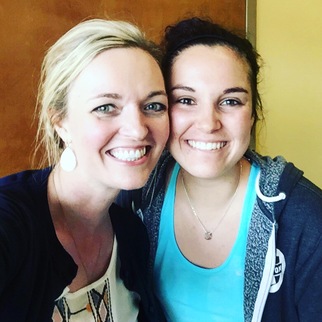 Next week, I will be speaking at the 2016 National Conference on Hydrocephalus, an event put on by the Hydrocephalus Association. I’m so excited and honored. In addition to participating in a few other aspects of the conference, I have been asked to join a panel discussion on the challenges that hydrocephalus patients face when transitioning from youth into adulthood. The years in which a child becomes an adult bring so many changes - not only in medical care, but sometimes in living situations, schooling, relationships, and/or jobs and career planning. Over the past few years I’ve had the pleasure of connecting with many parents of children with hydro, and I recognize that one of my primary roles in this community has been to encourage many moms and dads, who worry about what their little one’s adult life might look like. Even though there are a lot of “high functioning” adults with hydrocephalus out there, I think people have gravitated towards my husband and I because we are active and positive, and very open with my story. Despite the fact that we have had a rough road with my shunt over the past several years, we keep working hard at keeping me healthy and happy. Don’t get me wrong; we are human, and have many frustrations and heartbreak. But we remain a united front, and we refuse to be complacent - instead we take an active and aggressive role in my care, and that has worked well for us. Since the Hydrocephalus Association approached me with this speaking topic, I have spent a good deal of time reflecting on my own path. For those of you who aren’t able to attend the conference, I wanted to share a bit of my story, and a few of my thoughts on the subject of transitioning from youth into adulthood with hydrocephalus. MY STORY I grew up in a large family. I’m the second born of seven children. My parents are healthy, but in addition to my hydrocephalus, I have two sisters with juvenile rheumatoid arthritis, which is a devastating illness, as well as a sister who is mentally delayed. My sister Lisa was very sick from birth, and has spent her entire life battling her condition (arthritis) every day, which is very debilitating. As she grew, I watched my parents advocate for her not only medically, but also in school, hobbies, and in life. They relentlessly sought out and tried all types of therapies, searching for solutions for her pain and ways to help her have better function. Most importantly, they never let her believe that she was not going to be able to be a fully functioning member of society. As a result, she grew up to be a confident, social, smart, and beautiful human being. Despite spending at least half of her junior high and high school years laid up in bed recovering from various joint surgeries, she not only finished high school, but she finished at the top of her class - valedictorian. As an adult, she lives independently, owns a home, and has a very successful career. She is my inspiration every day - and the example she sets keeps me moving forward. I’m thankful to my parents for showing me by example how to gracefully navigate life with medical challenges. I was diagnosed with hydrocephalus at age seventeen, so I had fully grown and developed before it was discovered. The hydro had gone undetected for an unknown length of time, but it was suspected that it was years, based on the severity at the time of discovery, and the size of my ventricles. (*See “My Story” page for more information on my medical history) As a healthy and active teen who had never had a major illness or medical event, I was instantly thrown into the world of CT scans and MRI’s, hospitals, and ultimately, brain surgery. My entire life was put on hold until further notice, including schooling. Not only did I have to take some time off from high school, but college was indefinitely put off, until my health could stabilize. I was an excellent student and a champion fiddle player, with aspirations to become a professional musician, so I was devastated and totally lost as I tried to grasp the fact that life had just been ripped out from under me. Just like they had with Lisa, my parents flew into action, and got me the best medical care they could find. When things didn't work out with one neurosurgeon, we got different one. When I kept suffering from epic shunt failures, they looked for another option, and we found a surgeon who would perform an ETV surgery for me. They stayed positive, and they were always encouraging. But most importantly, they refused to let me wallow in self pity and doubt regarding the whole situation. Instead, I participated in my doctor’s visits, was expected to speak up and answer questions, communicate with my medical team, and make alternative plans for the years that followed high school. If it wasn’t safe for me to move away to college (or Nashville), I was to find a job and start living my life as if it was moving forward. I am forever grateful for the high expectations that were placed on my shoulders, and for the big push in the right direction…. because it made me who I am today. Ultimately, it also gave me better coping skills, and shaped the way I manage my hydrocephalus as an adult. My husband Clifton and I have a mission statement; to live in relentless pursuit of everything that’s important. In life, anything you want to accomplish will take a certain dogged determination. This includes love, health, career, and relationships. If you aren’t willing to throw yourself at a goal with reckless abandon, you may never see the full potential of what you desire. As a mentor to young girls who have hydrocephalus, I’ve had this conversation over and over again. There are many paths that lead to success in life. One person’s version of success might be completely different than another’s, but they will take equal relentless effort to achieve. MY ADVICE ON TRANSITIONING:
I get a lot of questions regarding intimate relationships/boyfriends/girlfriends - because these transitioning years is the time period that those things start to get serious! The advice that I can offer in this department is as follows:
In closing…. Hydrocephalus often leads us down a very difficult road, but love and life are well worth the battle - and it’s our choice to keep the wheels turning. If you have goals, believe in yourself - that you can and will do whatever it may takes to reach that success. If you are willing to work towards these goals in relentless pursuit, I BELIEVE IN YOU. I believe that you will persevere, overcome obstacles, and be the best version of yourself. #stayinthearena All my best, Amy Photo: Lauren Rodrigues, one of my hydro girls, and I - Lauren is currently in her freshman year of college, and just got into nursing school! 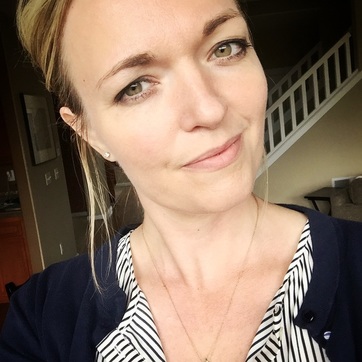 This morning, the spring rain is falling here in Oregon, washing the landscape and cleansing my soul. It’s been an interesting couple of months. I’ve been retreating a little bit - pulling back, processing, and preparing myself mentally for the road ahead. After several months of spilling my thoughts and sharing my journey every week, I’ve needed this time to rest and remember who I am. In this period of stillness, I’ve had a chance to reflect on where I’ve been, and where I’m going. One year ago, the focus of my treatment shifted, and my life changed forever. Under the guidance of my OT/PT, we began to address the current condition of my central nervous system (CNS), and the trauma that has resulted from over ten surgeries on my brain in just a few short years. Until that point, the sole focus of my medical team had been on my hydrocephalus, and my shunt. The shunt has always been the cause for the concern, the pain, and ultimately, all the brain surgeries. Unfortunately, we can’t do anything about the fact that my body needs a shunt, but hates it. At this point, I’m only averaging 3-6 months in between surgery episodes. So when my therapist told us that we would be treating my pain by working to soothe and heal my nervous system from the trauma of repeated surgery, it was a new way of thinking. In a nutshell, hydrocephalus can not be healed, but trauma can. Trauma comes in many different forms- physical, psychological, and emotional. Brain surgery several times a year has put my nervous system through a firestorm of trauma - from the anesthesia, medications, and the physical wounds of surgery, to the emotional roller coaster and the mental exhaustion of simply trying to get through the episodes without complete system meltdown. The nerves and muscles in my face, my inner ear, and vestibular system have all been rocked and damaged. The physical symptoms of PTSD have also become more pronounced as each surgery passes. But most importantly, my CNS gets stuck in sympathetic response (commonly referred to as “fight or flight”). As my brain reels from trauma after trauma, my system is subconsciously guarding itself from further harm, at all times. This heightened state of awareness affects my sleep, breathing, and my ability to heal. The main focus of my therapy and rehabilitation this past year has been to assist my body in getting out of sympathetic response, and into parasympathetic response (rest and digest mode). Honestly, it’s very difficult. I had no idea that my brain was so damaged, and I was unprepared for how terrifying the process of unearthing all of the suppressed trauma would be. My brain only responds to certain people and in certain environments, and only lets go when I am safe, and completely fatigued, neurologically. I’m not sure if I will ever feel comfortable with this, but I know that I have a new respect for what I’m going through every time I have a shunt malfunction or surgery. After working on rehabilitation with this focus for just a year, I’ve realized that it is going to be one of the key factors in my success, for the rest of my life. In 2015, I had a total of four surgeries. On paper, it was the worse year we’ve had with my brain to date, medically. However, by treating my CNS to heal the trauma after each surgery, we have been able to keep on track with the strategies that have historically allowed me to combat my hydrocephalus successfully. I’ve stayed active and strong, worked full time, and maintained the stability that I have strived so hard for in the past few years. While this has been one of the hardest years of my life, it’s also been one of the healthiest, and one of the happiest years. My mental perspective has also changed as my medical reality has evolved. I’ve always been a fighter, but now I know that I have to make an active choice to be well, and that only I can put in the work necessary to make that happen. It’s a daily challenge to to reach deep inside myself, choose to let go, and trust this painful and frightening process. My current shunt is five months old. Sometime around the beginning of March, my pain spiked, and we began the all-too-familiar process of trying to right the ship to avoid the inevitable. We’ve tried everything. I’ve rested, and I’ve pushed. I’ve medicated, and I’ve detoxed. We’ve adjusted, and we’ve waited. I’ve got pages and pages of journaling and documentation of previous shunt failures, and treatments and tricks that have helped. In the past two months, I have poured myself into those logs - seeking anything that seems like a repeated pattern, and trying everything I know to do. And, in the end, we fought a good battle, and I’m proud of where I am. I’m strong, I’m at peace, and I’m ready. But there is nothing left to do, except to replace the shunt valves and start over. I’m committed to finding the clearest path for my brain to travel, while it processes the trauma that I’m about to add to my system. This is about the physical aspects of recovery, but it’s also about mindset. It’s about being a fighter, but not fighting the process. It’s about trusting my team, and myself. And it’s about taking the shortest path through the shit, which is unfortunately straight through the shit. No detours. There is no greater gift than for someone to care for you so much, that they are willing to get down in the trenches of life with you in your darkest hour and weakest moments. You look them in the eyes, let them see your pain, and are comforted by their presence in these moments of transparency. I’ve said this before, but I am unbelievably blessed by those who hold my heart. My family, my friends, and my community surround me, covering me in love, encouragement and prayers. I’m not alone, and together we stand in this battle. That's the truth. Let’s do this again. We’ll hit the reset button, and show the world that we will be ok. Surgery #15 - scheduled 5/25/16 #stayinthearena Much Love, Am In the months since launching this website, I’ve received hundreds of emails from other hydrocephalus patients, family members, and supporters. The overwhelmingly common theme of these messages has simply been “how do you cope with the frustration?” Truthfully, I really don’t have a good answer for this question. I can only let you know that if you are dealing with the aggravation, discouragement, and fatigue of life with hydro (or any other illness, for that matter), you are not alone - and I am definitely no exception; I am frustrated too. Clifton and I have put ourselves out there by sharing our story, and one of our big messages to the community has been to take an aggressive, proactive, multi-disciplinary approach to overall health - and to work as hard as you can to control the factors that you can. But sometimes, you just have to let go, stop trying to fight at every single turn, and just trust the people around you to catch you as you fall into their arms - literally and figuratively. So, this is where I’m at. Since my last blog post a few weeks ago, we have been re-grouping and making some adjustments to my overall rehabilitation plan. I’m four months post-op now, and while I am physically the strongest I have ever been, and emotionally I am happy and at peace, my headache pain is once again off the charts - and the decision has been made to try to let my brain rest a little bit, while we have the chance. Even though I’m in pain, my medical team doesn’t have reason to believe my shunt is failing, so now is the time to take these steps back. On one hand, I’m relieved and content to wait it out for a while, just treat the pain as I can, and live my life quietly - outside the arena. I need the rest, especially since I haven’t had the best track record for time between surgeries these past few years. But on the other hand, it’s frustrating and disheartening, and it’s definitely not my nature sit out of the battle, and not push for constant improvement. Pain is a lonely island - especially when you are well enough that the outside world believes you are completely “normal”. Let’s be honest… I’m basically the queen of “fake it ’til you make it”. However, I need this right now. I need this time to walk alone and reset my resolve. I need this time to pull back and start over. And my brain needs a minute.. or a few weeks. There is a Matthew Perryman Jones record that I’ve had on repeat the past couple weeks, called Feels Like Letting Go. It pretty much sums up how I’m feeling. Oh my love help me open my heart again tear it open let the rain fall in wash this hardness underneath my skin Oh my love let me hear your voice come through I wanna know the love inside of you make this dark heart believe in what is true I know that in the dark there's a fear of letting go I know that in my heart that I fear what I don't know and this feels like I'm letting go and this feels like I'm letting go I'm letting go If you follow this blog or have read the content of this website, you know that music is a crucial part of my life, and my recovery process. Although I’ve been a musician for most of my life, it wasn’t until this past year that I learned the profound physical affect that music and rhythm can have to soothe the central nervous system. Music also has a powerful way of putting words and melody to emotions you can’t otherwise explain. On my Instagram account, I regularly share music that I’m listening to, and I am starting to create and share #musicheals playlists on my Spotify account, because I believe that music is both a language and a fellowship, and it is created to be shared. I hope that wherever you are tonight, you can be still, breathe, and listen to some music. We’re all in this together. Stay in the arena when you can, and take a break when you need to. In relentless pursuit, Am 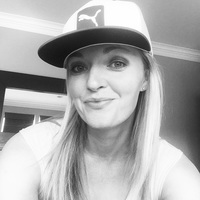 Three months ago, I launched this website/blog, with the hopes of reaching as many people as I could to spread awareness for hydrocephalus, and to provide support to patients and families who are also fighting through the ups and downs of life with this condition. I’ve been overwhelmed and humbled by the amazing number of people who have viewed the site, and reached out to me to share their own stories with hydro, their struggles, and their hopes for a good life. When I began using Instagram as a platform a couple of years ago, I had no idea that it would lead us to the point we are at today. The internet is a strangely vast and wonderful resource, but it’s also a scary and unrealistic place. Using social media, you can create a public version of yourself that is beautifully crafted; shaping the way you want the world (both friends and strangers) to see you. Through the rose colored lenses of photo filters, inspirational quotes, and smiling photos of evenings out and sunny vacations, a one-sided view of the world comes into focus. Please don’t get me wrong, because I am definitely not against positivity. We all know that there is way too much negativity on social media and on the internet in general, not to mention in the world around us. I have deliberately made a point to have a generally positive image on Instagram, not only because I believe that’s what Clifton & I strive for in life, but also because there is a need for positive role models in the hydrocephalus community. I try hard to focus on the quality of my life in between shunt failures, and not the horrible circumstances that come along with having brain surgery a few times a year. The ups and downs of my last nine brain surgeries, and the recoveries that followed, are well documented on my Instagram account, and now this website. I share as much as I feel is appropriate, because my story has been a vehicle by which I can reach people also connected with hydrocephalus. My hope is that they see that I’m a real person, with real struggles, and a super stubborn spirit that has pushed me through this journey with a certain level of success. I’m thankful for social media, for the opportunity to reach this community. However, it’s important to us that the public perception of me is accurate, and that my message as an advocate for hydrocephalus is as realistic and raw as I truly am - because how “easy” I make it look can be misunderstood by people who only know me in the capacity of Instagram. Through my website and blog, I have received hundreds of messages and emails from people all over the world who are suffering through hospital stays, multiple surgeries, and terrifying physical symptoms related to their ongoing battle - or their child’s battle with hydro. In a way, I have become somewhat of “a voice”, especially for those parents, many of whom are troubled because they do not have a way of knowing what it feels like, or where to start in creating a life for their child with this condition. I take this all very seriously, and want to help, not hinder, those who see me and follow my story for encouragement, information, and support. Yes, I have a wonderful life - a loving husband, an adorable dog, and an incredible network of friends and family. I have the most dedicated medical & rehabilitation team a girl could wish for. I’m thankful for every minute I breathe, every person I have the honor of loving, and every beautiful song I listen to. But I also have to physically, mentally, and emotionally push myself through some very dark days, just like everyone else. I suffer from a great deal of daily headache pain, and I have a lot of trouble with my nervous system being in a chronic state of sympathetic response, due to the repeated trauma of surgeries. With this comes PTSD, which causes me to not feel like myself for a period of time after procedures - and is probably the most disturbing and scary part of my journey. Over the past year, I have been on a mission to bring a certain level of authenticity not only to my online presence, but to my face to face relationships as well. I’ve always had a hard time letting anyone know that I am in pain, and I tend to guard myself from people seeing the mental effort it takes. Vulnerability is definitely not my strongpoint. But every single time I have hesitated before posting something to this blog, I have received stunning email messages that absolutely, without a doubt, tell me that I was supposed to share. What do I want people to know about me, about who I am, and what my experience looks like in real life? I guess I really want everyone to know that I believe strongly in putting in the work. My parents taught me from a young age that if you want anything in life, you have to be willing to grind through what it takes to get there. My husband and I have taken a multi-disciplinary approach to my health care, which takes a lot of time and effort, but is also really difficult to actually go through. We travel hours away to physicians that we believe are the best match for me. I push through several days/nights a week in therapies and in the gym for rehab, because staying strong has been a big component in my success. I also continue to work full time and maintain a social life, because I believe that the balance keeps me going. Sometimes I feel strong, and sometimes I’m completely overwhelmed by the tenacity and responsibility it takes to stay the course, and do what I know will ultimately help me. Doubt and insecurity creep in, as the surgical procedures pile up, and the time in between gets eaten up by the chaos in my traumatized brain. Although I’ve never been afraid of hydrocephalus, the surgery, or the pain, I constantly have to push away the fear of my health slipping. A select few people see the unguarded, rawest, brokenhearted moments, and the rest of the world sees the fighter. And I need both - I need the ones who hold me tight and put the pieces back together, and I need all the other people who cheer me on as I enter the arena again and again. So, what does it take? I’m still learning the answer to this question, but here is what I’ve found. It takes bravery. It takes understanding what you’re up against, believing that you’ll get through it, and wanting that more than you want to stay in the safe zone. It takes learning to handle yourself when life isn’t perfect and you’re in pain. It takes relentless pursuit of new solutions to all of the challenges that living with any illness brings to the table, including pain, anxiety, and depression. It takes connection. It takes knowing yourself, trusting those who are close to you, and believing in those who are taking care of you. And it takes hard work; lots of really hard work. But it’s possible - and only you have the power to create what your version of what success looks like. That’s the real story. Stay in the arena…. it’s where the magic happens. Amy |
AuthorMy name is Amy but friends and family call me Am. I am a lover of dogs, good whiskey, and strength training. I'm a brain surgery survivor (x31), a fiddle player, a construction designer, and a boxing enthusiast. I have six real siblings, and five fake brothers. I love deeply, and consider my close friends to be family. Archives
February 2022
Categories
All
|

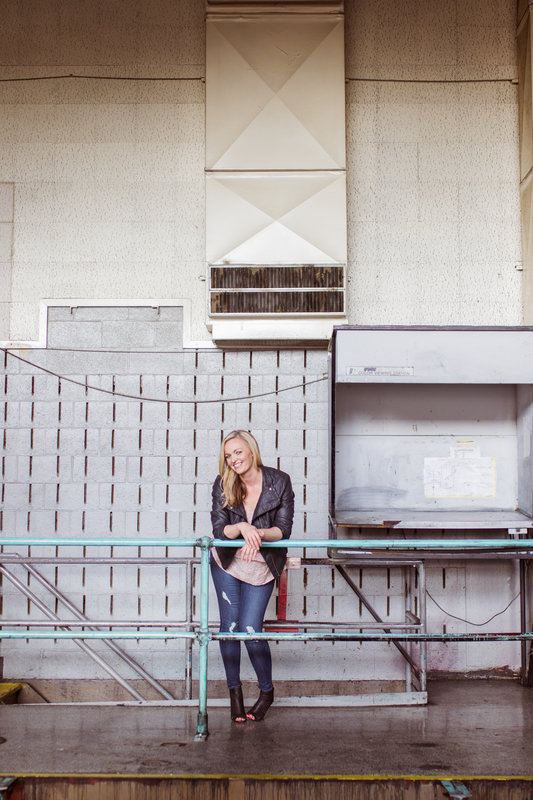
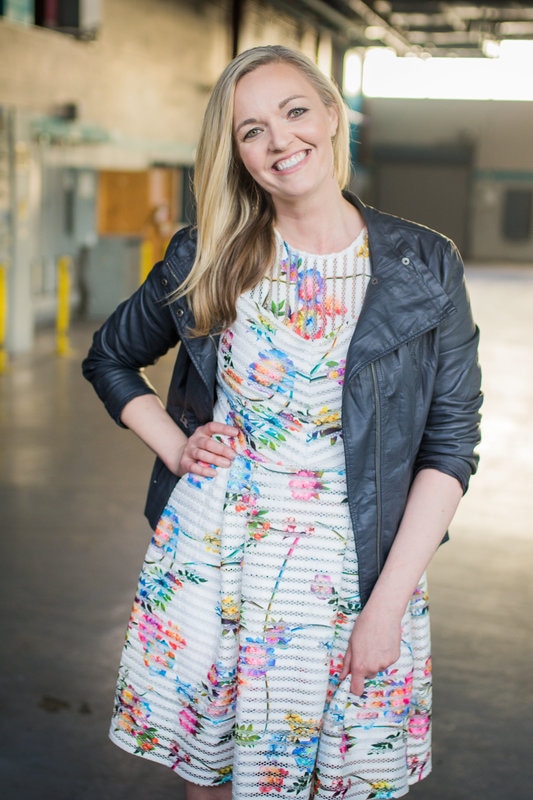
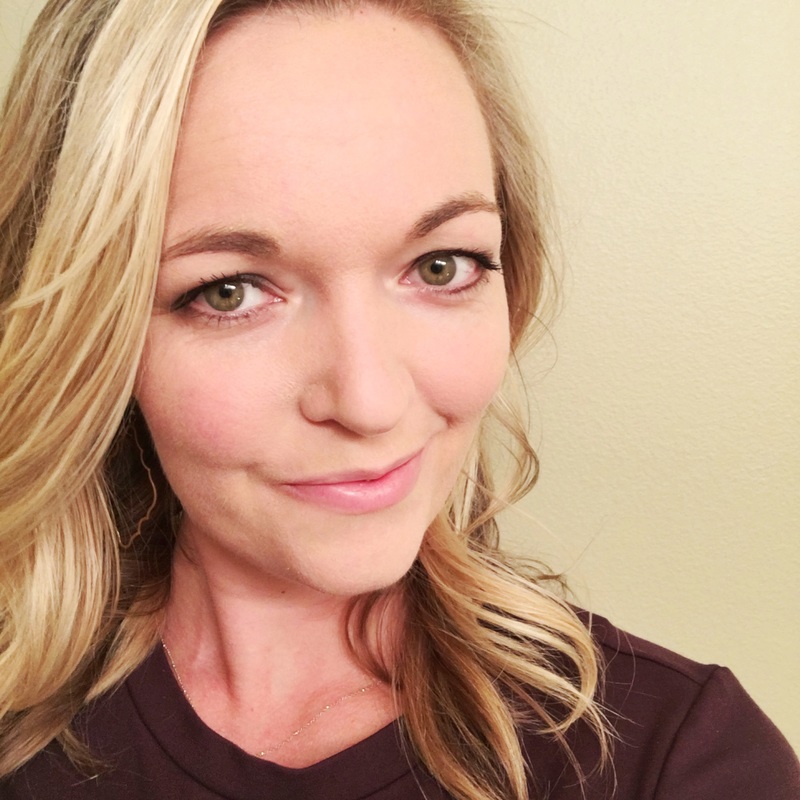
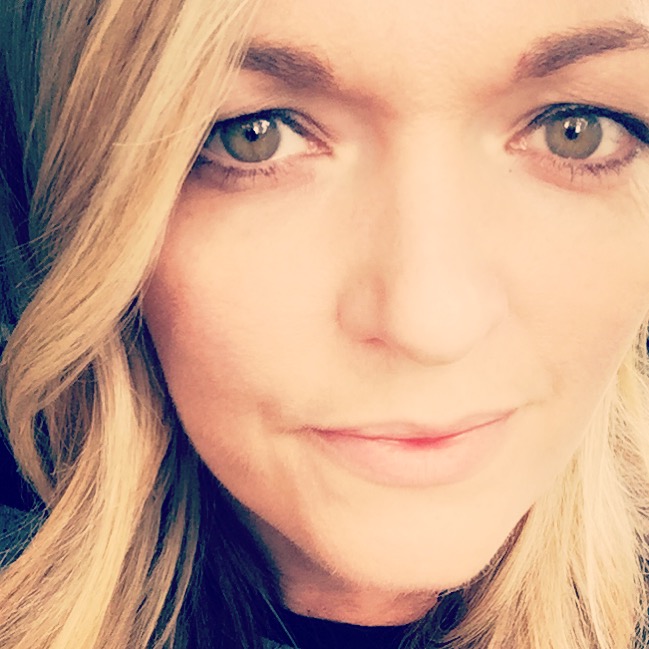
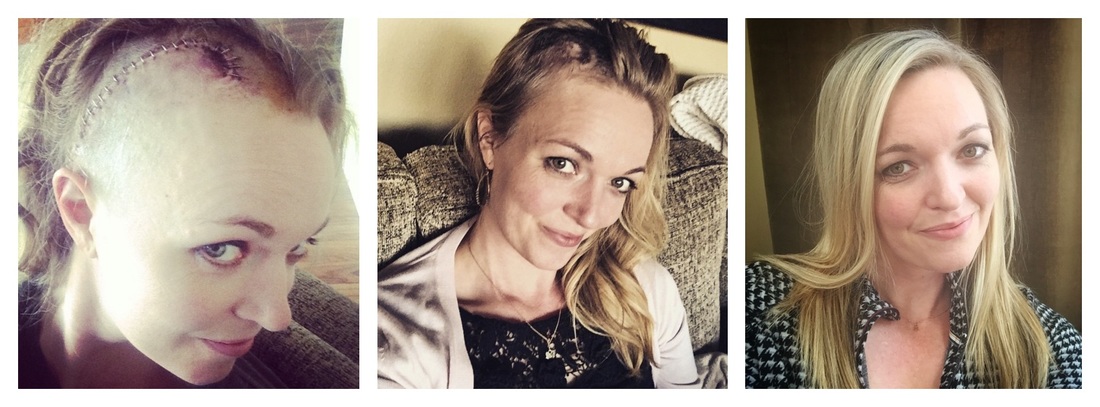
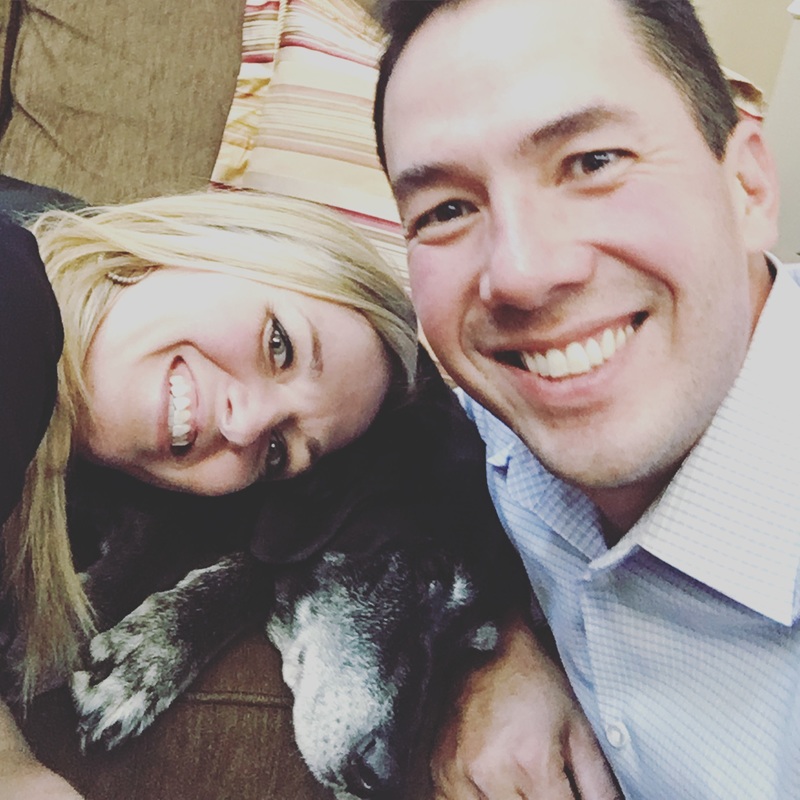
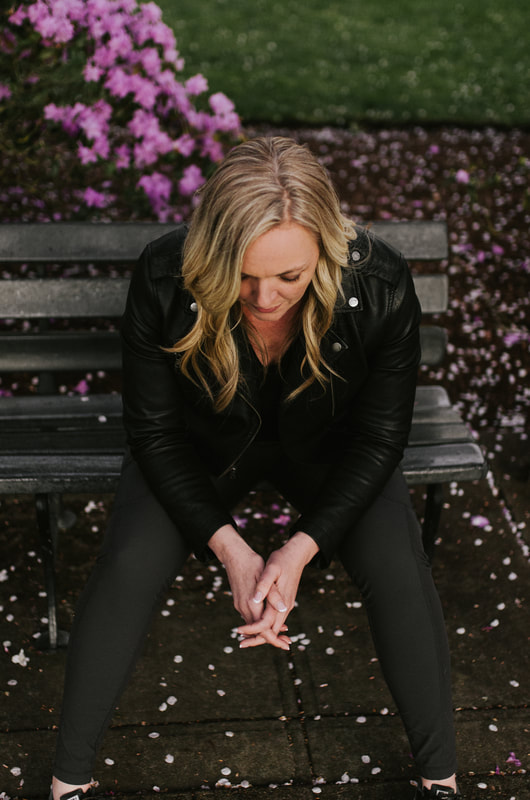
 RSS Feed
RSS Feed